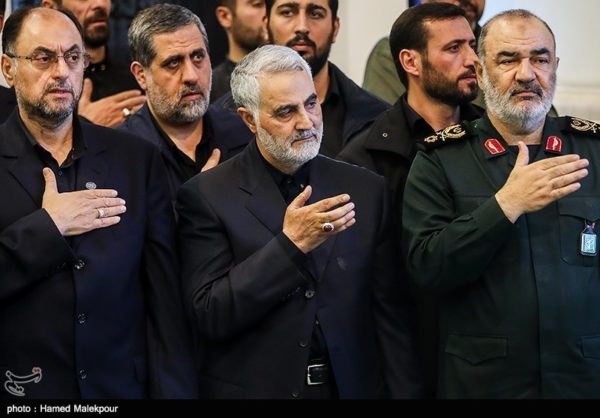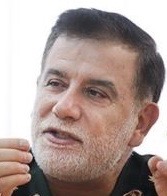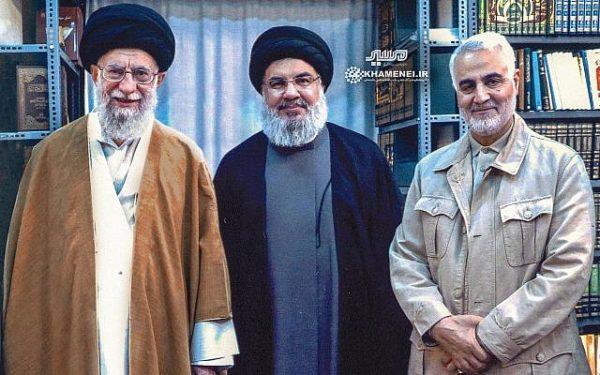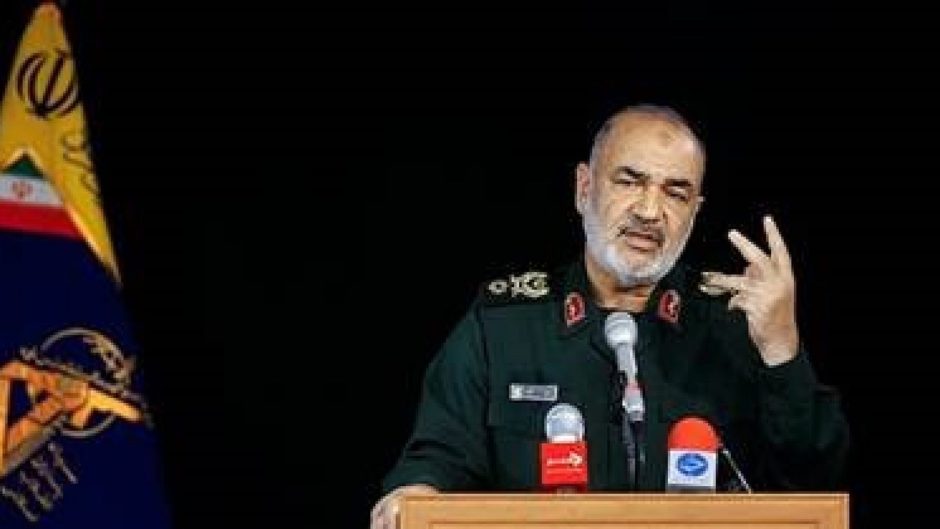A top-level Iranian official conveyed a stark New Year’s greeting to Israel as Rosh Hashanah got underway.
General Hossein Salami, the commander of the Islamic Revolutionary Guards Corps, declared that Iran now possesses the capability to eradicate Israel. “We have managed to obtain the capacity to destroy the impostor Zionist regime,” he boasted. “This sinister regime must be wiped off the map, and this is no longer a dream (but) an achievable goal.”

Iran violates the charter and the spirit of the United Nations flagrantly by threatening to destroy a member state. Indeed, Iran has the dubious distinction of being the world’s only country to issue such bombastic threats. But this glaring and unacceptable violation of UN norms is of no concern to Iran’s mullahs, politicians and generals. Nor, lamentably, is it a cause for impassioned debate at the UN.
That Salami delivered such a threatening message on a major Jewish holiday is probably not coincidental. It would be safe to assume that he deliberately chose to make his announcement on Rosh Hashanah to underscore the point that Israel’s destruction is one of the prime objectives of the Iranian regime, which is already at odds with the United States and a number of European powers on its nuclear and ballistic missile programs and its malign activities in the region.
Salami’s threat, though chilling, is hardly new.
Only two days before, Salami’s subordinate, Abbas Nilforoushan, the deputy contender of operations of the Islamic Revolutionary Guards Corps, issued a dire warning aimed at Israel. Boasting of Iran’s “deep and long-range (missile) assault capability,” he said that if Israel attacks Iran, it will have “to collect bits and pieces of Tel Aviv from the lower depths of the Mediterranean Sea.”

“We will not let the enemies face us at our borders,” he added. “We will quickly drag the war to the bases and interests of the enemies anywhere they happen to be.”
Taken together, their blood-thirsty comments reveal the true face of the Iranian leadership, notwithstanding the usually soothing and conciliatory words coming out of the mouth of Iran’s urbane and articulate foreign minister, Mohammed Javad Zarif.
Since the 1979 Islamic revolution, which resulted in the overthrow of the pro-Western Pahlavi monarchy, a procession of Iranian political, religious and military leaders have hurled bloodcurdling threats at Israel, known in Tehran as the Little Satan. As Nilforoushan clearly admitted, Iran is bent on harming Israel. “Iran has encircled Israel from all four sides,” he said in an indirect reference to Iran’s efforts to establish military bases near Israel’s border and to build a land corridor from Tehran to Lebanon and Syria by way of Iraq.
Iranian attempts to destroy Israel are destabilizing the Middle East and could yet trigger a catastrophic regional war. Iran’s Lebanese proxy, Hezbollah, is playing the same dirty game. Several days ago, Hezbollah leader Hassan Nasrallah acknowledged as much. Boasting that Hezbollah has collected “extensive” and “unprecedented levels of intelligence” about Israel, he said, “We are threatening (Israel), and we will enter occupied Palestine.”
Nasrallah’s threat meshes with his previous statements that, in the next war, Hezbollah will try to invade and occupy northern Israel.

Israel has the capabilities to inflict enormous pain and suffering on Hezbollah and Iran. But a fullscale war pitting Israel against its arch foes would not be in Israel’s interest. Despite its awesome firepower, Israel is vulnerable. Hezbollah and Iran could unleash tens of thousands of missiles at Israeli towns and cities, causing fearsome casualties and massive property damage.
This caveat aside, Israel should exert all efforts, political and military, to contain Iran and Hezbollah, both of which are exacerbating tensions in the Middle East.
